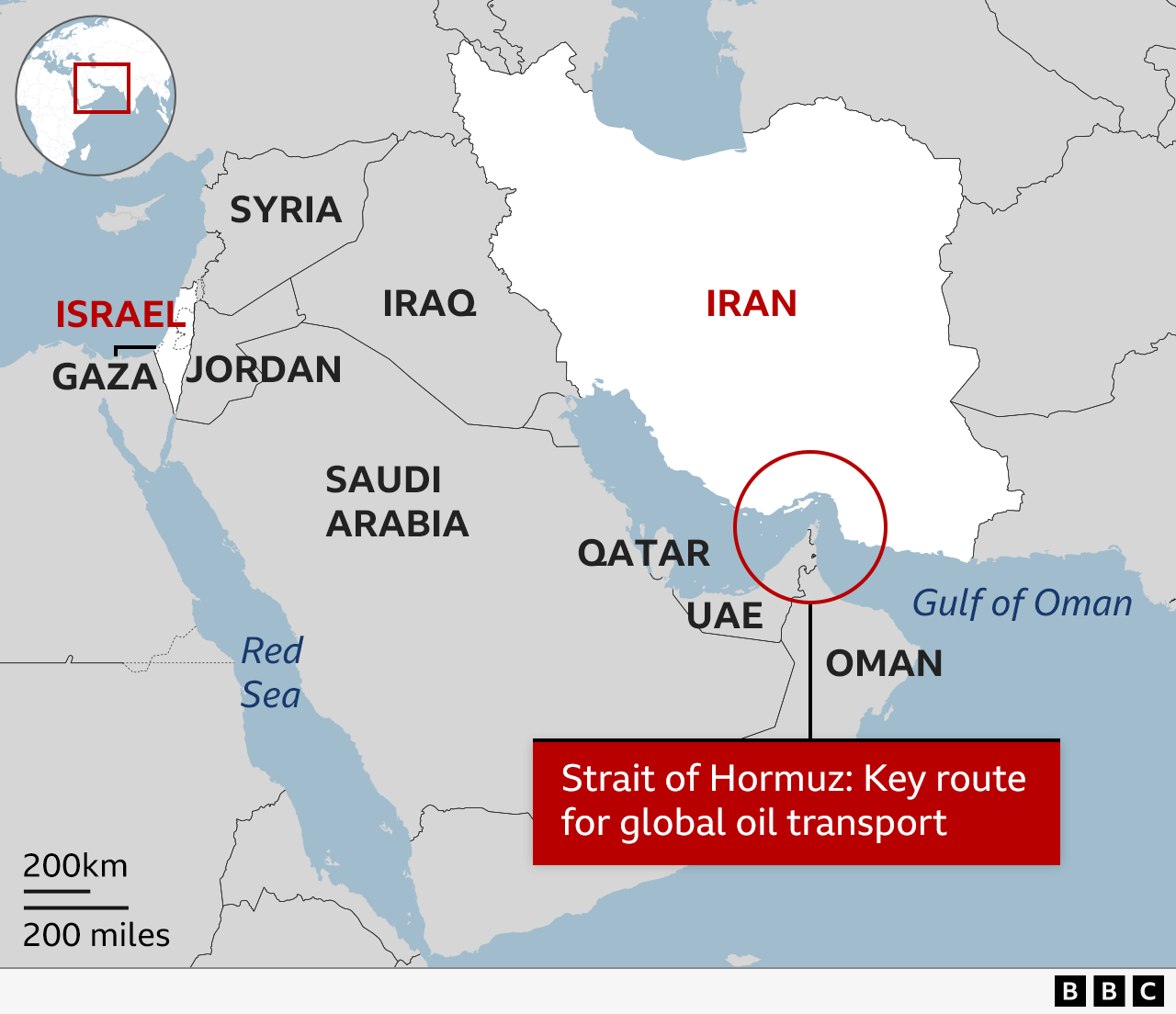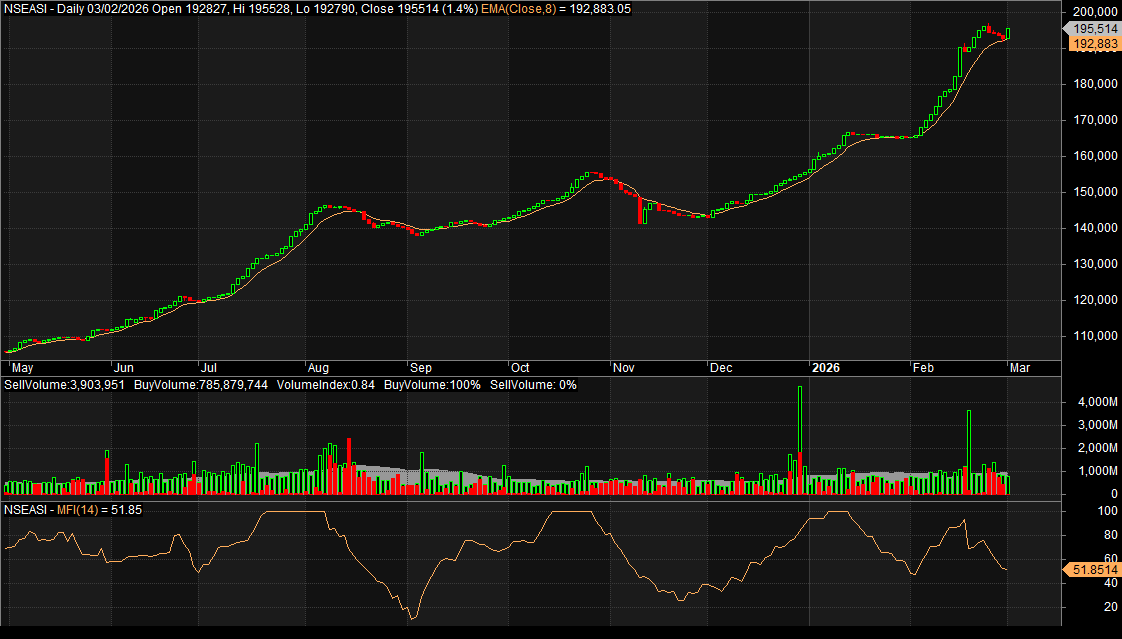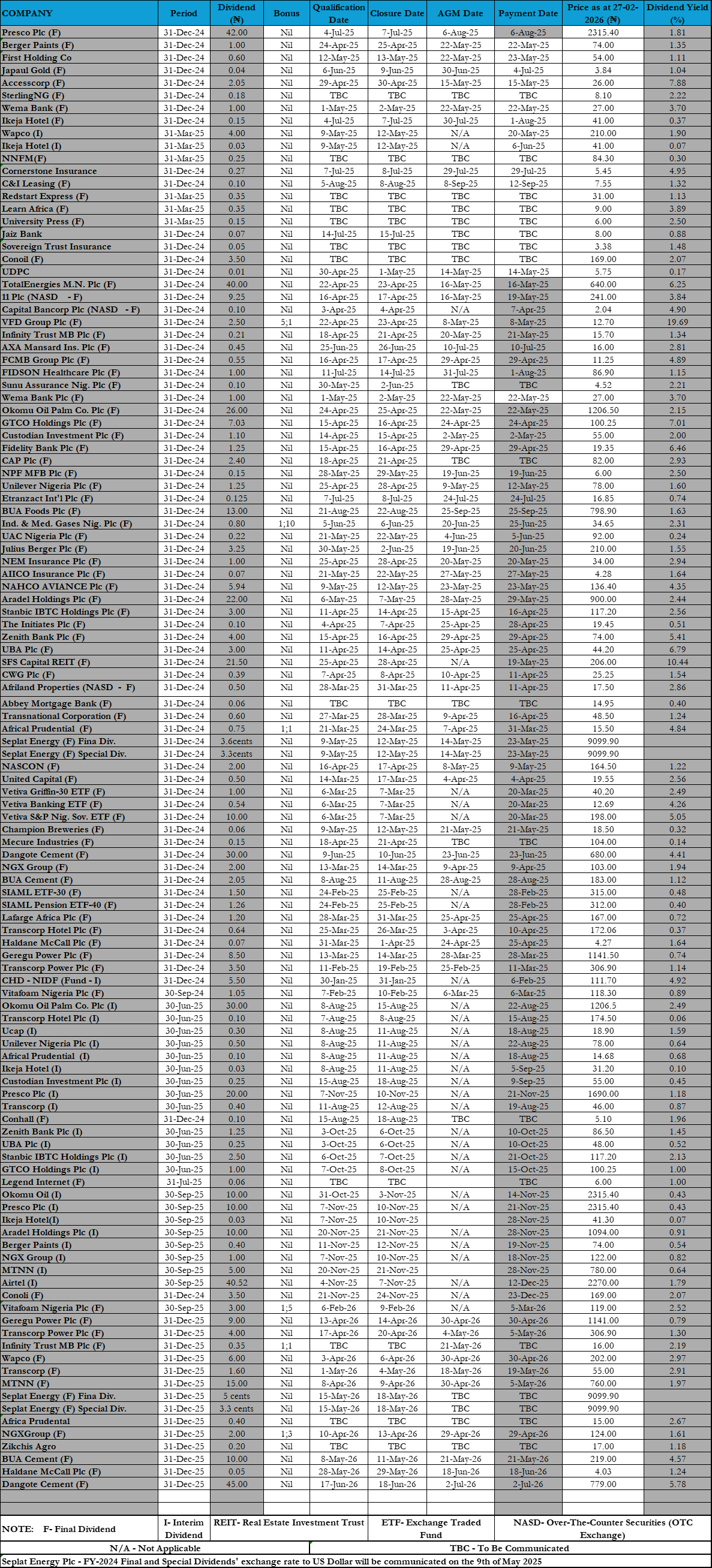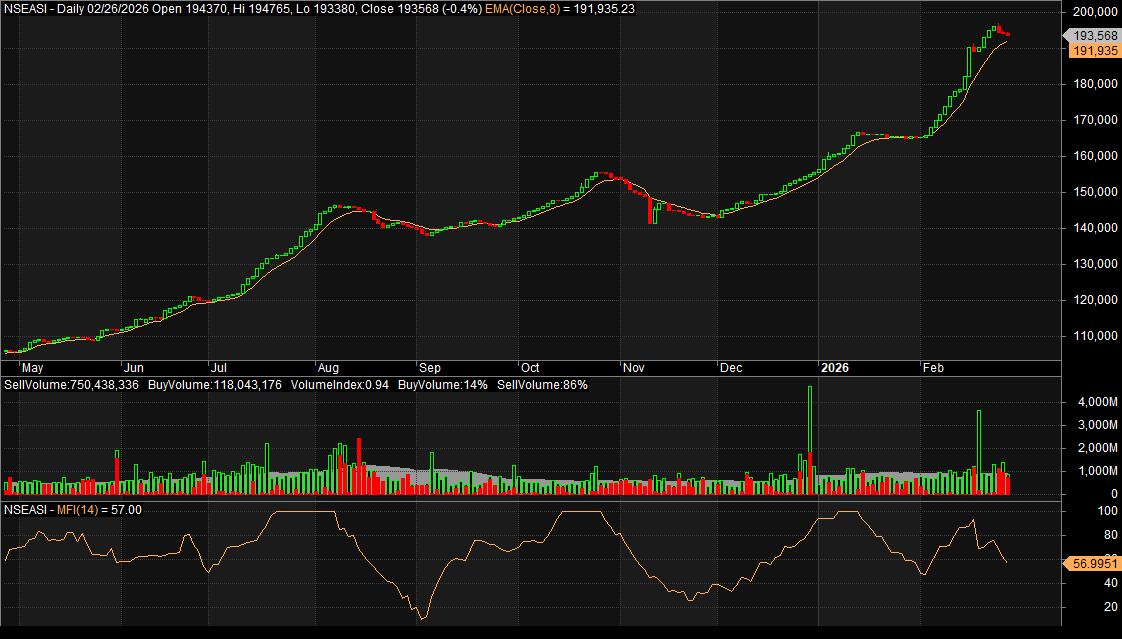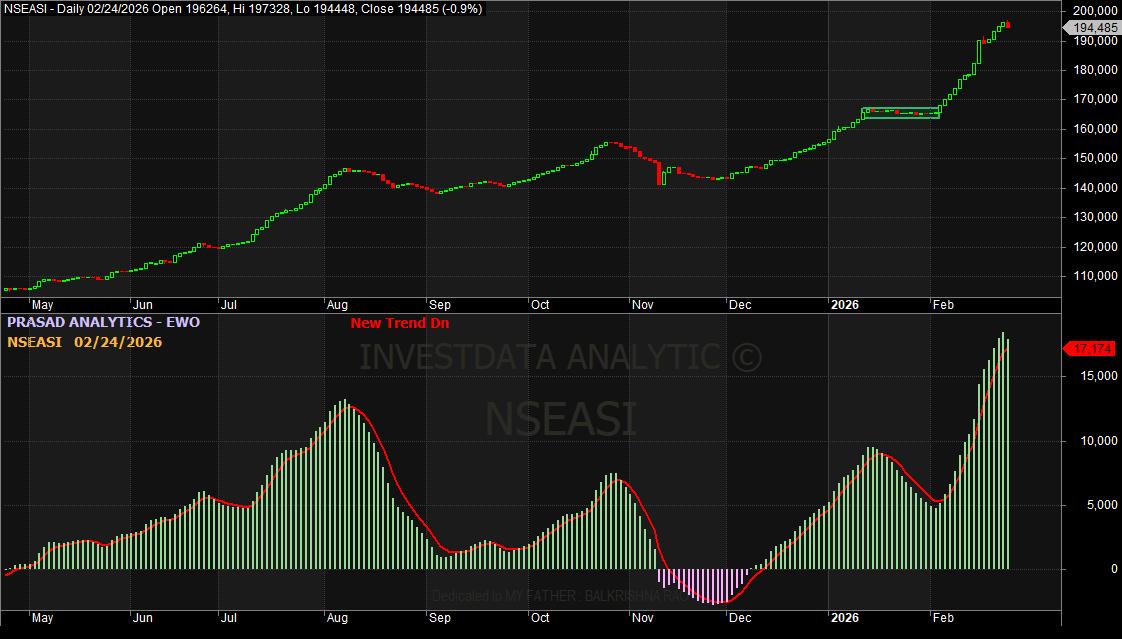
The Nigerian Exchange (NGX) ended the trading week on Friday slightly bearish, halting a five-day winning streak as profit-taking in key blue-chip stocks dragged the market lower. Selloffs were seen in PZ Cusson, NGX GROUP, Dangote Cement, United Capital and 16 other decliners, a situation that weighed on market performance, pulling the composite NGX All-Share Index (ASI) 0.09 percent down to close at 140,545.69 basis points from the previous day’s 140,665.84bps. Market capitalization slipped by ₦81.44 billion to ₦88.92 trillion, moderating year-to-date return to 36.55 percent.
Friday’s slight decline reflected investors’ decision to lock in gains after the week’s earlier rally, a common occurrence that follows a period of sustained market upside.
Despite the negative close, market breadth remained positive, suggesting that buying interest persisted across several mid and small-cap counters.
Despite the negative slant, 30 stocks closed in the green compared to 20 losers, indicating that bargain hunters remain active in the market.
REGALINS led the gainers’ chart while Mutual Benefit Assurance closed as the top loser. Notably, ETRANZACT and CHELLARAM extended their bull-run, hitting fresh 52-week highs at ₦14.95 and ₦13.30 respectively, a sign of renewed investor confidence and sustained momentum buying in select stocks.
Market activity strengthened considerably as trading volume advanced by 14.95 percent to 434.73 million units changing hands for ₦16.17 billion across 23,729 deals. NSLTECH emerged as the most traded stock by volume, accounting for 71.44 million units and 16.43 percent of the day’s turnover, followed by ACCESSCORP and STERLINGNG. ARADEL dominated in terms of value, contributing ₦8.79 billion or 54.35 percent of total value traded, with ACCESSCORP and ZENITHBANK also ranking among the top value drivers. The improvement in both volume and value highlights renewed participation by institutional and retail investors, showing that interest in the market remains strong despite the mild pullback.
Sectoral performance was mixed, with declines in the industrial goods and banking sectors exerting downward pressure on the benchmark index. The banking index closed slightly lower on the back of sell pressure in ACCESSCORP and FBNH, while consumer goods and oil and gas counters posted marginal gains, supported by renewed demand in select names. This sector rotation reflects a market still searching for equilibrium as investors reposition ahead of third-quarter corporate earnings.
On the global stage, crude oil prices rallied on Friday, climbing nearly two percent after a Ukrainian drone strike on Russia’s Primorsk port forced a temporary suspension of oil loading operations. Brent crude rose 1.5 percent to settle at $67.39 per barrel, while West Texas Intermediate gained 1.7 percent to $63.45. The supply disruption offset worries over oversupply and weak U.S. demand, and the rebound in prices could support sentiment toward Nigerian upstream oil and gas stocks in the short term as investors factor in potential earnings tailwinds.
From a technical perspective, the NGX All-Share Index remains within a bullish channel despite Friday’s correction. The index closed slightly above its short-term 20-day moving average, suggesting that the overall uptrend is intact. Immediate support is expected around the 140,200 to 140,000 level, with stronger support seen near 139,500 points. If buying momentum resumes next week, the index could attempt to retest the 141,200 and 142,000 levels.
Looking ahead, market performance is expected to remain mixed in the coming week as investors continue to rebalance their portfolios ahead of the release of more third-quarter earnings reports. Bargain hunters are likely to take advantage of price pullbacks in fundamentally sound stocks, even as profit-taking persists in a few large-cap counters. The direction of the market will depend largely on the strength of incoming earnings results, macroeconomic developments, and the movement in crude oil prices, which continue to shape investor sentiment.
For strategic investors, the current market volatility offers opportunities to accumulate quality stocks with strong fundamentals, particularly in the banking, consumer goods, industrial, and oil and gas sectors, in preparation for the next upward swing in prices.



